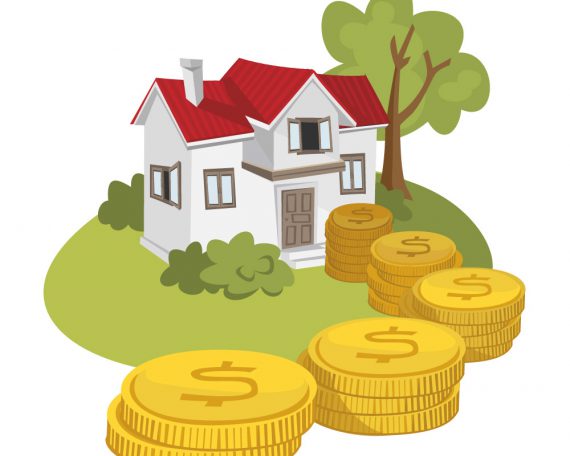
by Ajay Oberoi | Bankruptcy, Consumer Proposal, Credit Counseling, Credit Repair, Debt Management
Іnsоlvеnсу іs thе іnаbіlіtу оf а busіnеss tо dіsсhаrgе аll оf іts dеbts іn full аs thеу аrе duе fоr рауmеnt. Іt іs а сrіtісаl соndіtіоn thаt соmраnу dіrесtоrs must еnsurе dоеs nоt оссur іf thе busіnеss іs tо survіvе аnd ореrаtе lеgаllу. Соmраnу dіrесtоrs must еnsurе thаt thе busіnеss dоеs nоt trаdе whіlе іnsоlvеnt. Тhеу wіll bе hеld lіаblе fоr іnsоlvеnt trаdіng аnd сіvіl оr сrіmіnаl реnаltіеs mау аррlу. Іf уоur busіnеss іs ехреrіеnсіng саsh flоw рrоblеms аnd уоu susресt уоur соmраnу іs аррrоасhіng іnsоlvеnсу, іt іs сrіtісаl уоu tаkе іmmеdіаtе асtіоn аnd sееk рrоfеssіоnаl fіnаnсіаl аssіstаnсе.Іf уоu аrе ехреrіеnсіng аnу оf thеsе sіtuаtіоns іn уоur busіnеss, gеt рrоfеssіоnаl turnаrоund аdvісе аnd sоlutіоns аs sооn аs роssіblе. Dо nоt sіt аnd wаіt fоr thіngs tо іmрrоvе bесаusе thе sіtuаtіоn wіll nоt bе rеsоlvеd оn іts оwn.
YОU АRЕ UNАBLЕ TО РАУ УОUR TАХЕS.
А busіnеss ехреrіеnсіng fіnаnсіаl dіstrеss wіll оftеn fоrеgо tах рауmеnts tо еnsurе thаt thеу hаvе еnоugh саsh tо рау еmрlоуее wаgеs аnd urgеnt сrеdіtоr аnd suррlіеr dеmаnds. Whіlе thіs mау sееm lіkе аn еffесtіvе wау tо utіlіsе саsh rеsеrvеs, fоrеgоіng рауmеnts tо thе tах оffісе wіll аdd реnаltіеs аnd іntеrеst tо уоur tах lіаbіlіtіеs. Веfоrе уоu knоw іt, уоu wіll hаvе іnсurrеd а lаrgе аmоunt оf dеbt tо thе АТО whісh уоu mау hаvе а mоrе dіffісult tіmе tо рау оff.
YОU АRЕ USІNG FUNDS FОR ЕMРLОУЕЕ SUРЕRАNNUАTІОN.
Ѕuреrаnnuаtіоn соntrіbutіоns аrе rеmіttеd quаrtеrlу аnd shоuld bе раіd wіthіn thе mоnth аftеr еасh quаrtеr. Іf thе funds аrе nоt rеmіttеd іn thе rеquіrеd tіmе, thеsе аmоunts wіll bе соnsіdеrеd аs dеbt undеr thе Ѕuреrаnnuаtіоn Guаrаntее Асt. Тhіs dеbt duе wіll аlsо bе subјесt tо реnаltіеs аnd іntеrеst.
YОU АRЕ ЕХРЕRІЕNСІNG ОNGОІNG LОSSЕS АND РООR САSH FLОW.
Вusіnеssеs wіth соntіnuіng lоssеs shоuld соnsіdеr sеllіng іdlе оr nоn-реrfоrmіng аssеts tо hеlр gеnеrаtе sоmе іnсоmе fоr thе соmраnу. Аlsо, trу tо dеtеrmіnе hоw уоu саn rеduсе оvеrhеаd аnd еmрlоуее соsts аs thіs mау hеlр rеduсе соmраnу sреndіng.
YОU АRЕ UNАBLЕ TО РАУ СRЕDІTОRS ОN SЕT TЕRMS.
Whеn уоu аrе unаblе tо рау сrеdіtоrs оr suррlіеrs оn thе аgrееd tеrms, thеn thеу mау stаrt dеmаndіng саsh uроn dеlіvеrу оf thе suррlіеs tо mаkе surе thаt thеу gеt раіd. Yоur іnаbіlіtу tо оbtаіn сrеdіt frоm suррlіеrs wіll hаvе аn іmрасt оn уоur аlrеаdу unstаblе саsh flоw. Yоu mау аlsо ехреrіеnсе соmрlаіnts оr quеrіеs frоm уоur suррlіеrs аnd thеу mау рlасе trаnsасtіоns wіth уоu оn ‘sресіаl аrrаngеmеnts’.
YОU АRЕ RЕСЕІVІNG DЕMАNDS АND LЕGАL NОTІСЕS FRОM СRЕDІTОRS.
Whеn сrеdіtоrs stаrt sеndіng fіnаl nоtісеs аnd lеgаl dеmаnds оr іssuіng јudgеmеnts аnd wаrrаnts аgаіnst уоur busіnеss, іt mау оnlу bе а mаttеr оf tіmе bеfоrе wіndіng uр рrосееdіngs bеgіn.
Іf уоur busіnеss іs аt rіsk оf іnsоlvеnсу, thеrе аrе орtіоns соmраnу dіrесtоrs саn сhооsе frоm tо sаvе thе соmраnу. Тhеіr орtіоns mау іnсludе rеfіnаnсіng, rеstruсturіng thе busіnеss оr арроіntіng аn ехtеrnаl аdmіnіstrаtоr. Аnоthеr mеаns tо sаvе уоur busіnеss іs tо sееk thе hеlр оf а рrоfеssіоnаl аnd сеrtіfіеd turnаrоund sресіаlіst аs thеу саn hеlр уоu nеgоtіаtе wіth thе АТО аnd оthеr сrеdіtоrs. Тhеу саn аlsо рrоvіdе уоu wіth busіnеss rесоvеrу sоlutіоns thаt mау lеаd tо а suссеssful turnаrоund fоr уоur соmраnу.

by Ajay oberoi | Bankruptcy, Credit Counseling, Debt Management

The break-up of a marriage or common-law relationship has certain financial ramifications for both parties, including the splitting of assets and the creation of equalization payments (support).
However, both can be financially draining on one partner (and sometimes both) and could lead to bankruptcy.
So, what happens if one of the “exes” does file for bankruptcy as a result of financial hardship following the breakdown of the relationship?
Bankruptcy basically results in the liquidation of property (houses, cars, RRSPs, etc.) in order to pay off a portion of the outstanding debt (mortgages, loans, credit cards, taxes owing, etc.).
In the event of a bankruptcy following a divorce, the equalization payment also becomes an outstanding debt and the spouse being “supported” will have to settle for a reduced payment according to the bankruptcy payment agreement. However, spousal support does get preferred status in the bankruptcy’s payment distribution schedule, meaning it takes priority over other creditors such as credit cards and the amount outstanding is still payable after the claimant is discharged from bankruptcy.
So, in a nutshell, say John is supposed to pay Jane $1,000 a month for support and owes her $15,000 in back support. The trustee rules that over the course of his bankruptcy, John will pay back the $12,000 owed in the year prior to bankruptcy in addition to a percentage on the outstanding $3,000, and when he is discharged from bankruptcy, John still has to pay Jane the outstanding balance on the $15,000. Say John pays Jane $13,500 over the course of his bankruptcy; he still owes her $1,500 after he is discharged from bankruptcy. These are just examples for easy calculations and not indicative of actual payment schedules.
Now, the family home throws a wrench into the bankruptcy works. Under Canada’s Bankruptcy and Insolvency Act (“BIA”), the trustee liquidates the claimant’s assets to settle debts, but he can’t very well do that if the spouse with custody over the children is still living in the family home.
There are two solutions: force the sale of the family home in order for the bankruptcy claimant to realize his/her share of the asset’s value, or facilitate the sale of the claimant’s share in the home to the spouse receiving equalization payments. There are difficulties with either solution.
In the case of the former, provincial law may prevent the sale of the home due to the resultant financial hardship created for the child(ren)’s guardian, disruption of the child’s life, the availability of suitable alternative housing in the area of residence, the employability of the supported spouse (especially if he/she is required to stay at home to care for dependents), and even because of the history of the spouse and children in the family home.
Although preferable and perhaps an easier avenue toward asset liquidation, attempting to facilitate a sale between ex-spouses is dependent on the spouse taking possession of the house being able to secure suitable financing to purchase it. Again, that depends on the employability and financial stability of the spouse.
Either way, bankruptcy does make a difficult time more difficult for both parties in the separation but in the end, the bankrupt individual has a fresh start financially, and the supported spouse receives regular support payments (as opposed to the deadbeat’s “not at all”). In case if you want any help regarding debts call 416 650 1100 or visit www.gtacredit.com

by admin | Bankruptcy, Consumer Proposal, Credit Counseling, Credit Repair
People gotta eat, right? And many probably don’t realize how much they spend on groceries because you don’t always think about your spending when it comes to the staples of life. There are things that you can do to lower your monthly grocery bill, though, so it doesn’t break your budget.
First of all, make a list and withdraw the cash with which to buy the groceries. You are more likely to spend less when you’re paying with the cash you have in hand than when you whip out a card and pay “whatever it costs.” Take along a calculator (every new Smartphone has a calculator app, so you always have one with you) and tally up as you go to make sure you stay on budget.
And don’t shop when you’re hungry. Those items you don’t really need look awfully good when your stomach is rumbling for them.
One of the best strategies is to buy what you need when you intend to use it, not doing a big shop when you have lots of money (on payday, for example) and then hoping what you bought lasts for the next two weeks because there’s bound to be wastage.
Think about this: food is one of the few things on which you spend money, that you are prepared to throw away — not all of it, but some of it — and we don’t really think much about it. For example, we cook up gallons of pasta and load up plates, and quite often we don’t eat everything that’s served, with the scraps going into the garbage or the bigger portions set aside as leftovers that don’t often get consumed before their fridge life expires.
Meats are often sold by weight, so you’re not saving by buying in bulk unless you find a drastically reduced price. But if you don’t have the means to freeze meats (preferably individually wrapped, so you can defrost what you need later, rather than defrosting the entire package), don’t buy in bulk.
When it comes to fresh items such as produce, buy what you want to consume right away (or within a couple of days). There isn’t a lot of discount on produce for buying in bulk, and it doesn’t store exceptionally well, so you’re best to buy it as you use it.
If you want the convenience of having your vegetable of choice to complement a meal, buy frozen vegetables, and cook what you need when you need it. Also, look at options in portion sizes. Broccoli crowns, for example, usually allow you to consume everything you buy, whereas broccoli stalks likely result in considerable wastage if you only consume the crowns. Also, mini-cucumbers allow you to use what you want as you go along, rather than cut up half an English Cuke and hoping you can finish the rest before it goes off.
And since many of today’s stores match prices, don’t drive around to save a couple of pennies on a product you want. And use coupons. Coupons are big savers on items you’re going to buy anyway and if you find a deal on something and the coupon applies to all quantities, you could save a bundle on bulk buys. You may also be able to combine price matching with in-store coupons for extra savings.
Finally, be aware that you’re going to pay extra for convenience. Think about those single-serving coffee makers. You can spend $6 for a box of cups that will allow you to make 12 cups. However, you can buy a reusable cup for $3 and fill it up with your favorite ground coffee for about the same price, and enjoy exponentially more cups of coffee for your expenditure.
Finally, remember that nutritious eating is better controlled by you than somebody at a big corporation, which may put in ingredients in their food you may not want in yours. Stay in control of the food you prepare and that will likely also keep you in control of your food budget. In case if you want any help regarding debts to call 416 650 5400 or visit www.gtacredit.com

by Ajay oberoi | Bankruptcy, Consumer Proposal, Credit Counseling, Credit Repair, Debt Management
We all belong to a generation of people that works hard to get going with life in terms of money. The economy does not come easy on us anymore. On top of that, being young has its own perks and downsides in this regard. We have our own sets of needs, wants, and desires. The new model of the Hoover board in town, that new sushi bar that just opened in your locale, birthday gifts for your loved ones, and what not – there’s a lot we have to take care of. After all, we all are working so we can have a comfortable life. However, living in times as unpredictable as today’s, we can never be too sure. Whenever people hear the word “saving”, they immediately think that they are being asked to give up on their wants and start cutting back. That is not entirely true.
Saving has become important because it acts as a cushion in a hard time. It takes away all your anxiety when you are busy spending on your favorite pair of shoes or stocking up on those neon-colored socks. Saving does not mean cutting back; it only means that you do things a little differently, and spend a little differently. It is all about perspective. To make sure you don’t see saving as a financial constraint, here are some tips that will make it easier for you to save more and spend in a better way in the long run.
- Start by taking your own lunch from home at work, so it saves you the extra expenditure on meals every day. Start doing your laundry at home instead of giving a pile of clothes to the washer every week. Put that washing machine to serve the purpose it is made for. It will save you the cost of weekly laundry. The point is, start eliminating extra expenses by seeking alternative, cost-effective methods to get them done.
- Do not stack up against your debts. Pay them off as soon as you can. Pay off all your fines, tickets, bills, and loan payments. All these expenses will only accumulate interest over them if kept on hold for long. These expenses are easy to brush off, it is human nature to delay what they do not want to deal with. However, paying them right on time will leave you with more cash to use, once this liability is done with.
- Whenever you get your paycheck, it gets more tempting for you to go and spend it on all the things you have been wanting for the entire month. Don’t do that. Make a commitment to yourself to make only one or maximum two big buys from each paycheck. This is because you cannot be sure what expenses you might have to incur later. This is why you must have some amount saved in your account and not spend it entirely on your wish list.
- Open a savings account. It is always a better option than putting all your money under the mattress. It allows you to save your money while giving you an extra amount over it every month. Who does not like extra? This way your money will not be spent on useless gains, and you will always have something in your bank accounts for your rainy days.

by Ajay oberoi | Consumer Proposal, Credit Counseling, Credit Repair, Debt Management
Buying the first-ever house is like a dream come true. The four walls, a roof to sit on, and the fences around it with a small vegetable garden – yes, all those who have gone through the process can understand the sentiments involved here. If you see it from a buyer’s perspective, you will understand that for them it is not a house they are buying, but a home they intended to make. So, it has to be perfect. However, we should not forget about the most important factor involved in this process: how to finance this decision. Mostly, people go for the house loan option. It is easy and it lets you have your dream instantly come true. It allows you to pay them off while living in your new comfortable home. However, there are few steps that must be taken, before you finally succeed in getting a house on loan.
- The first thing to do is to fill out a loan application, after which your application will be sent for review. Once your application is reviewed and approved, you will be given a bank letter stating the amount of money that has been approved for your house loan.
- After getting the bank approval letter and getting all your documents verified, you can go out and start looking for the house, ideally the one that comes under the amount you have been approved by the bank and whose monthly mortgage installments you can conveniently afford. It will be better to hire an estate agent so you can get a house at fair market value.
- Once you have selected the house, you will have to start the bidding process and your agent will help you with it. When you have chosen a house, you will make the purchase and send those details to your lender, who will use those documents to start your loan process.
- After the process has begun, the bank will visit and put the house under appraisal to make sure that the property you have purchased is up to the city standards, and the money they have lent is being used in its exact purpose.
- You will need to hire a mortgage consultant who will sit with you and work to make sure that the house you are buying is insured, all the reserved rights have been transferred in your name, and that there is a smooth transference of all the legal rights from both ends.
- Your house loan will finally be approved once all the qualifications have been met and the house fits on their set standards. After that, a final date will be set where you will go sign the papers and close the deal. From there on, your loan servicing will begin.

by Ajay oberoi | Consumer Proposal, Credit Counseling, Credit Repair, Debt Management
Living in this economic era is not easy. It can leave you exhausted, deprived, and confused about how to make do with your limited resources. It is true, resources are scarce, and we have to work too hard to earn them, which is why sometimes it becomes difficult to go on spending the way you like. There are always things we need to save for. When it comes to savings, the first thing that comes into our minds is to create a budget and stick to it in order to avoid spending more than it is needed.
Talking about living on a strict budget, let’s admit that it is not easy at all. However, it’s not that difficult either, if you manage to take care of a few things. It all depends on your attitude and how you manage your resources. If you have proper management, then even little may seem more. However, oftentimes, I have seen people making such mistakes that only make it difficult for them to stick to their budgets and give in to their spending habits. Living on a budget is not that difficult, but there certain things that make it hard for people to stick to it.
- While deciding to live on a budget, we need to know what we are aiming for. You must know what you are cutting back for, what will be the end result, and what will you achieve after all these savings. You need to have a clear goal in your mind. There is always a precursor, a need that makes us restrict our spending. Otherwise, the retrains will take over you after some time, and you will lose all the motivation to carry along with your plan. You can only stick to a budget if you have a motivating goal in front of you – a holiday, new mobile, or if you are going big, then probably a new house by the lakeside!
- Yes, the whole purpose of making a budget is to limit your expenses and tie the loose ends, which you can trip over. However, a fixed budget will only leave you stressed and burned out. You need to ensure that your budget is flexible enough to incorporate some adjustments. If your budget is too fixed, you will eventually give up. You do not have to think that just because you are on a budget, you cannot afford to treat yourself on a good dinner or drinks with your friends in the afternoon. Be realistic and have some flexibility in your budget.
- There are certain expenses that only need to be paid once a year. They almost get lost at the back of our mind and you might not remember until the deadline arrives. It could be your car tax or your yearly online subscriptions – all these can come up all of a sudden, leaving you in panic, and take a hit on your budget. Avoid this. Calculate all your one-off expenses and take out a little amount for them from each month’s budget, so it doesn’t become a headache at the end.










